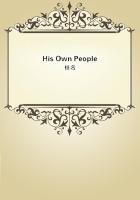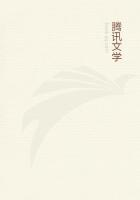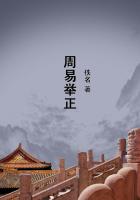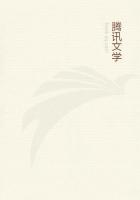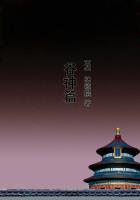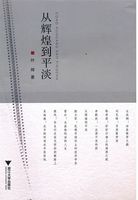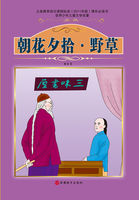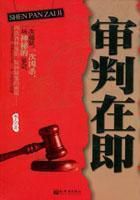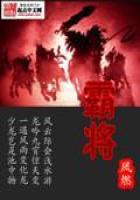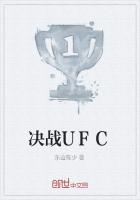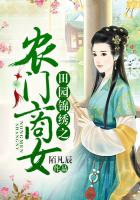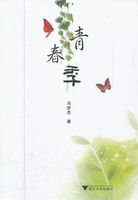The whole social state of a nation will be chiefly determinedby the principle of the variety and division of occupations and thecooperation of its productive powers.What the pin is in the pinmanufactory, that the national well-being is to the large societywhich we term 'the nation.' The most important division ofoccupations in the nation is that between the mental and materialones.Both are mutually dependent on one another.The more themental producers succeed in promoting morality, religion,enlightenment, increase of knowledge, extension of liberty and ofperfection of political institutions -- security of persons andproperty within the State, and the independence and power of thenation externally -- so much greater will be the production ofmaterial Wealth.On the other hand, the more goods that thematerial producers produce, the more will mental production becapable of being promoted.
The most important division of occupations, and the mostimportant co-operation of productive powers in material production,is that of agriculture and manufacture.Both depend mutually uponone another, as we have shown.
As in the pin manufactory, so also in the nation does theproductiveness of every individual -- of every separate branch ofproduction -- and finally of the whole nation depend on theexertions of all individuals standing in proper relation to oneanother.We call this relation the balance or the harmony of theproductive powers.It is possible for a nation to possess too manyphilosophers, philologers, and literati, and too few skilledartisans, merchants, and seamen.This is the consequence of highlyadvanced and learned culture which is not supported by a highlyadvanced manufacturing power and by an extensive internal andexternal trade; it is as if in a pin manufactory far more pin headswere manufactured than pin points.The surplus pin heads in such anation are: a mass of useless books, subtle theoretical systems,and learned controversies, through which the mind of the nation ismore obscured than cultivated, and is withdrawn from usefuloccupations; consequently its productive powers are retarded intheir progress almost as much as if it possessed too many priestsand too few instructors of youth, too many soldiers and too fewpoliticians, too many administrators and too few judges anddefenders of justice and right.
A nation which only carries on agriculture, is an individualwho in his material production lacks one arm.Commerce is merelythe medium of exchange between the agricultural and themanufacturing power, and between their separate branches.A nationwhich exchanges agricultural products for foreign manufacturedgoods is an individual with one arm, which is supported by aforeign arm.This support may be useful to it, but not so useful asif it possessed two arms itself, and this because its activity isdependent on the caprice of the foreigner.In possession of amanufacturing power of its own, it can produce as much provisionsand raw materials as the home manufacturers can consume; but ifdependent upon foreign manufacturers, it can merely produce as muchsurplus as foreign nations do not care to produce for themselves,and which they are obliged to buy from another country.
As between the different districts of one and the same country,so does the division of labour and the co-operation of theproductive powers operate between the various nations of the earth.
The former is conducted by internal or national, the latter byinternational commerce.The international co-operation ofproductive powers is, however, a very imperfect one, inasmuch as itmay be frequently interrupted by wars, political regulations,commercial crises, &c.Although it is the most important in onesense, inasmuch as by it the various nations of the earth areconnected with one another, it is nevertheless the least importantwith regard to the prosperity of any separate nation which isalready far advanced in civilisation.This is admitted by writersof the popular school, who declare that the home market of a nationis without comparison more important than its foreign market.Itfollows from this, that it is the interest of every great nation tomake the national confederation of its productive powers the mainobject of its exertions, and to consider their internationalconfederation as second in importance to it.
Both international and national division of labour are chieflydetermined by climate and by Nature herself.We cannot produce inevery country tea as in China, spices as in Java, cotton as inLouisiana, or corn, wool, fruit, and manufactured goods as in thecountries of the temperate zone.It would be folly for a nation toattempt to supply itself by means of national division of labour(i.e.by home production) with articles for the production of whichit is not favoured by nature, and which it can procure better andcheaper by means of international division of labour (i.e.throughforeign commerce).And just as much does it betoken a want ofnational intelligence or national industry if a nation does notemploy all the natural powers which it possesses in order tosatisfy its own internal wants, and then by means of the surplus ofits own productions to purchase those necessary articles whichnature has forbidden it to produce on its own territory.
The countries of the world most favoured by nature, with regardto both national and international division of labour, areevidently those whose soil brings forth the most common necessariesof life of the best quality and in the largest quantity, and whoseclimate is most conducive to bodily and mental exertion, and theseare the countries of the temperate zone; for in these countries themanufacturing power especially prospers, by means of which thenation not merely attains to the highest degree of mental andsocial development and of political power, but is also enabled tomake the countries of tropical climates and of inferiorcivilisation tributary in a certain measure to itself.Thecountries of the temperate zone therefore are above all otherscalled upon to bring their own national division of labour to thehighest perfection, and to use the international division of labourfor their enrichment.
NOTES:
1.Wealth of Nations, Book I.chap.i.
2.Wealth of Nations, Book I.chap.i.

